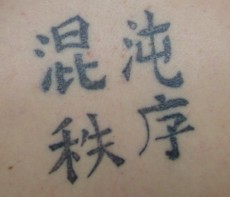In addition to distorting children's thoughts, abuse also forces children into a position of having to "hide the family secret". This prevents children from having real relationships and has life-long effects. And because our ability to form healthy social relationships is learned, abused children are deprived of many skills necessary to navigate the social world. Their entire concept of a relationship is distorted. This leads to problematic relationships in life and even on the job.
Another disturbing aspect of abuse is the experiential restraint it puts on children. If a child fears doing anything new because of the chance that it will lead to a violent attack or because an abusive parent keeps extremely tight control over them, the child will lose his or her sense of curiosity and wonder at the world and will stop trying new things and exercising his or her mind. That child will never achieve his or her intellectual potential.
Another aspect of abuse which cannot be ignored is the physical stress it puts on a child. Multiple exposures to violence and trauma cause what's known as autonomic and endocrine hyperarousal. Basically it means the victim gets stressed out. When a person experiences this hyperarousal over and over again, there are permanent physiological changes. These changes can be seen as over-reactions to stimuli, as in being easily startled especially by things that remind the victim of the original event; generally being emotionally numb; craving high-risk, stimulating, or dangerous experiences or self-injury; difficulties in attention and concentration; cardiovascular problems; and immune suppression which leads to a higher risk for colds and more severe illnesses.Effects of child abuse:
Academic difficulties; Agressive behavior; Alcohol and/or other drug abuse; Anxiety; Attention problems; Bad dreams; Bed wetting; Behavior problems; Chronic pain; Compulsive sexual behaviors; Concentration problems; Dangerous behavior such as speeding; Dehydration; Depression; Dissociative states; Eating disorders; Failure to thrive; Fear or shyness; Fear of certain adults or places; Frequent injuries; Insomnia; Learning problems; Lying; Malnutrition; Oppositionality; Panic attacks; Physical symptoms such as headaches and stomach aches; Repeated self-injury; Risky sexual behaviors; Running away; Self neglect; Separation anxiety; Sexual dysfunction; Sleep disorders; Social withdrawal; Stealing; Stuttering; Substance abuse; Suicide attempts; Thumb-sucking or any age-inappropriate behavior; Truancy.2,3,6,15
Children have different levels of resiliency or hardiness and different personality attributes, so different children respond differently to similarly abusive situations. That's why the lists of warning signs above seems so general. None of the symptoms above is diagnostic of child abuse - i.e., the presence of any of the signs above does not prove that abuse has occurred. Also, a child may endure abuse without developing any of the symptoms above. Abuse simply increases the risk for all of the symptoms. Basically, children are supposed to learn everything they need to thrive in this world from their caretakers. Abusive parents provide the opposite of what children need. Instead of teaching and nurturing growth, they distort and destroy.

1 comment:
Thanks for providing this information and allowing me to include it in the Blog Carnival Against Child Abuse. Welcome!
Post a Comment